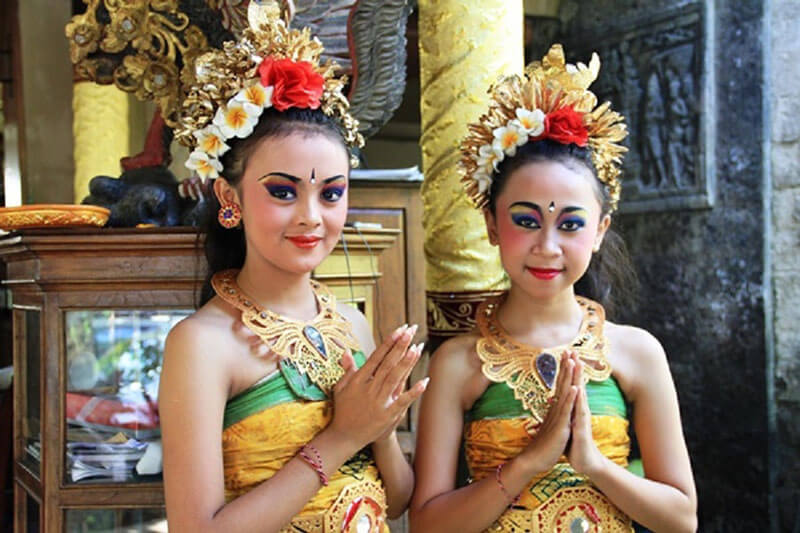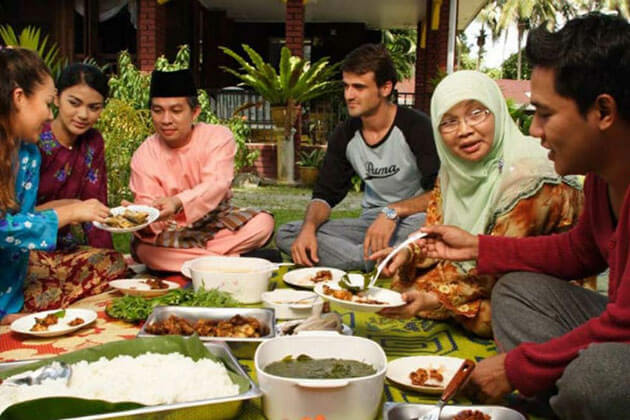Bestowed with thousands of stunning islands stretching along the Equator, Indonesia is definitely one of the places on earth that you should visit once in a lifetime. So far, with 300 ethnic groups inhabiting in over 8000 beautiful islands, getting to know about Indonesian greetings & etiquette is necessary to have a meaningful Indonesia trip with full of delight and unforgettable local experiences.
Indonesia Greetings & Etiquette
Although there are more than 85% of the people in Indonesia consider themselves Muslim, their practices are different considerably from Islam as it's practiced in the Middle East. People’s ideology takes much from Buddhism, Hinduism, and Chinese Confucianism.
How to Greet Other in Indonesia
The Indonesian language has no need for past or future tense, which means that verbs only exist in the present tense. Also, Bahasa Indonesia makes no distinction between masculine and feminine nouns. Moreover, on your trip, you will discover that to make the language even less complicated, the words have no plural; singular and plural terms are all the same.
When meeting an Indonesian for the first time, you should say “Selamat” (sell-a-mat), which means peace. This word should be said slowly with sincerity. For the formal greetings, shaking hands is available with a man. In case that is a woman, you should only shake her hand if she initiates the greeting.
Hierarchical relationships are very important to Indonesians. People respect for age, status, and power of each other. When you are in a group introduction, always greet the eldest or most senior person first. Be careful with back slap or touch to a person's head as it is considered a disrespectful action.
Saving Face
The cultural principle of Indonesia takes the root mainly from Confucianism and Buddhism. Accordingly, Indonesians don't like conflict. As a result, saving face and not being caustic towards others is important for travelers to remember. The people are easy to embarrass so deliberating someone is considered very rude. In order to be friendly and prompt, you should pay attention to the tone of your voice and never try to accuse anyone to accept when you have enough evidence. Problems should be solved in private places, not in public places like streets or bus stations.
Hand Gesture
Hand gesture plays an important role in Indonesian greetings. It is common to shake others' hands when you say Good Morning to show your politeness, respect, as well as friendliness. However, you should be careful when you do it to the elderly people because it would give a ‘distance’ sense and considered impolite. In this situation, you should greet with a slight nod. An important note is that you need to know the situation!
Useful Phrases for Greetings in Indonesia
Greetings & Farewell
Selamat Pagi: Good morning
Selamat Siang: Good afternoon
Selamat sore: Good evening
Selamat malam: Good night
Apa kabar?: How are you? – Kabar baik: I’m good
Terima kasih: Thank you
Sama Sama: You are welcome
Yes/No: Ia/ Tidak
Asking or Requests
Permisi (per-mee-see): excuse me
Terima kasih (te-ree-ma ka-seeh): thank yo
Saya tidak mengerti (saa-yha tee-dah me-nger-tee): I don’t understand
Di mana toilet? (dee maa-naa toilet?): where is the toilet?
Saya mau pesan (saa-yaa maaw pe-san): I want to order
Jangan terlalu pedas (jaa-ngan ter-laa-luw pe-dash): don’t make the dish too spicy
Berapa harganya? (be-raa-paa harr-gah-nyaa): how much is this?
Essential Tips about Indonesian Etiquettes for Visitors
Indonesian people are generous, so when you are invited into a local’s home by the localhost that you know, that would be a common situation. When you visit their house, it is respectful to bring a small gift. When sitting, Indonesians never show the soles of their feet or allow their feet to point towards another person. Therefore, it is a sign of respect to keep both your feet on the floor and adopt a straight posture when sitting


